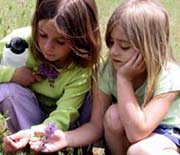Life Skills
We call these "Life Skills" because they assist one in being effective, authentic, and compassionate in all areas of life.
When students participate in Thrivability Institute programs they have the opportunity to learn Life-skills that could include the following:
- How to learn and honor one's own learning style
Various learning techniques will be explored, such as Centered Learning, Brain Gym, etc. - How to use design skills in all aspects of life
The design techniques of Victor Papanek, Michael Braungart, and William McDonough (among others) will be incorporated into our skills bank, empowering participants to intentionally choose to design their world to reflect their own unique magnificent contribution. - How to listen deeply to one's heart and body
Many methods can be explored. Most of all, participants will be invited to find their own inner path. - How to honor all life in one's everyday choices
Honoring ALL means seeing the interconnectedness of all life, and consciously making choices that express one's own heart-felt beliefs in relationship to all aspects of life, while still honoring the aliveness, sustainability, and diversity of all. - How to see and communicate from the heart
Our perceptions are limited by our beliefs, and therefore are always subjective. Learning to be open to seeing beyond previously perceived limitations expands our awareness and experience of life. Learning to honor other's perceptions as unique and valid also honors our own.
Using the skills developed through differing communication modalities, including Compassionate Listening, Nonviolent Communication, Dynamic Facilitating, etc., we will explore how to communicate in a manner that validates each other's experience while expressing our own needs and feelings. - How to empower yourself and others to express innate magnificence
Only when we feel good about ourselves can we be fully present in the moment, without dragging issues from the past (or fears about tomorrow) into today. Learning to embrace every aspect of ourselves - even those we have judged - leads to self-acceptance and wholeness. Seeing ourselves as magnificent learning-beings also allows us to see others in the same light. It is from this space that we can truly empower ourselves and others to contribute our best. - Peer to peer learning, reflecting life's realities
Adults do not live in a world divided by age groups, they naturally relate to those who resonate with what excites them, regardless of their age. We honor students of all ages when we allow them to do the same.
Likewise, one of the best methods of learning is to teach. Encouraging participants to share their skills and knowledge not only increases their learning experience, but it allows them to share their passions with others, one of the most fulfilling experiences humans enjoy. - How to Self-assess and Self-correct
Effective researchers and students learn to observe without judgment, to self-assess, and then to make appropriate "course-corrections" (similar to the way a trim-tab makes slight adjustments to the rudder of a boat that yield significant change).. Mistakes can be seen as learning tools or simply as feedback, and not as "miss-takes" or errors at all. Equally important is the ability to listen to your own heart and then trust your own decisions. Trust can only flourish in an atmosphere free from judgment, so we will be learning to treat ourselves and others with non-judgmental tenderness. - How to make conscious choices and take full responsibility for them
When we are willing to observe free from judgment, an infinite field of possibilities unfolds. This is the ground from which conscious choice is possible, and in that space, taking responsibility for our choices becomes natural. - Thriv'In is intent on researching and creating opportunities for thriving. Therefore, we will focus on creating and running profitable businesses that expresses the joy and essence of those participating.

